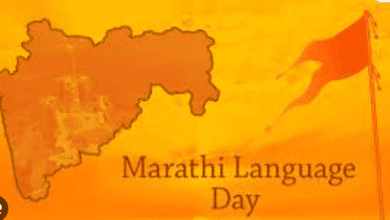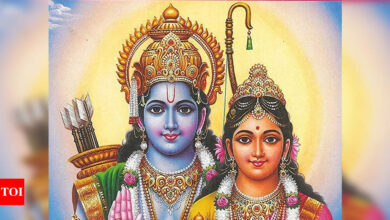Language Movement Day In Bangladesh 2024
Unveiling the Legends: Language Movement Day in Bangladesh
Discover the inspiring history and heroes of Language Movement Day in Bangladesh, a celebration of linguistic resilience and cultural pride.
Read also:
QUICK FACTS:
- Date: February 21st
- Main Components: Paying homage to the language martyrs, celebrating the Bengali language and culture, observing the International Mother Language Day
- Popularity: A national holiday in Bangladesh and a global event recognized by UNESCO
- Pairings: Ekushey Book Fair, cultural programs, patriotic songs
- Variations: Language Martyrs’ Day, State Language Day, Shohid Dibosh, Ekushey February
Introduction
Language is not only a means of communication, but also a symbol of identity, culture, and heritage. For the people of Bangladesh, the Bengali language is a source of pride and dignity, as well as a reminder of their struggle for freedom and justice. The Language Movement Day in Bangladesh, observed on February 21 every year, is a day to honor the sacrifices of those who fought for their mother tongue against the oppression and discrimination of the Pakistani regime. It is also a day to celebrate the richness and diversity of the Bengali language and culture, and to promote the linguistic and cultural rights of all people around the world.
Background
The historical and cultural roots of the Bengali language
- The Bengali language is one of the oldest and most widely spoken languages in the world, with over 300 million native speakers in Bangladesh, India, and other countries.
- The Bengali language originated from Magadhi Prakrit, an ancient language spoken in the eastern part of India around 1000 A.D. It later evolved into various regional dialects, such as Abahatta, Charyapada, and Shreekrishna Kirtana.
- The Bengali language was influenced by various languages, such as Sanskrit, Arabic, Persian, Turkish, and English, due to the historical interactions and invasions of different empires and cultures in the region.
- The Bengali language underwent a process of modernization and standardization during the Bengal Renaissance, a period of social, cultural, and intellectual awakening in the 19th and 20th centuries. The works of prominent writers, poets, and scholars, such as Rabindranath Tagore, Kazi Nazrul Islam, Bankim Chandra Chattopadhyay, and Ishwar Chandra Vidyasagar, contributed to the development and enrichment of the Bengali language and literature.
The political and social context of the Bengali language in British India and Pakistan
- The Bengali-speaking people in the eastern part of India faced various challenges and hardships under the British colonial rule, which lasted from 1757 to 1947. The British imposed their policies and laws on the people, exploited their resources and labor, and suppressed their rights and aspirations.
- The partition of India in 1947, based on religious lines, divided the Bengali-speaking region into two parts: East Bengal, which became a part of the newly formed Dominion of Pakistan, and West Bengal, which remained in the Dominion of India. The partition resulted in a massive displacement and violence of millions of people on both sides of the border.
- The Dominion of Pakistan, later the Islamic Republic of Pakistan, consisted of two geographically and culturally distinct units: East Pakistan and West Pakistan, separated by a distance of about 1600 kilometers. The majority of the population in East Pakistan was Bengali-speaking, while the majority of the population in West Pakistan was Urdu-speaking. The central government, the civil service, and the military were dominated by the West Pakistani elite, who imposed their policies and interests on the East Pakistani people.
- The Bengali language, which was the mother tongue of about 56% of the population of Pakistan, was denied its due recognition and status by the Pakistani authorities, who favored Urdu as the sole state language and the medium of education and administration. The Bengali language was also discriminated against and suppressed in the fields of culture, media, and commerce.
Related: Revolution Day In Libya 2023
Events
The early protests and agitations for the recognition of the Bengali language in East Pakistan
- The first sign of resistance against the imposition of Urdu as the state language came from the students of Dhaka University, who organized a meeting on December 8, 1947, under the leadership of Abul Kashem, the secretary of Tamaddun Majlish, a Bengali Islamic cultural organization. The meeting passed a resolution demanding that Bengali be declared as one of the state languages of Pakistan and as the medium of education in East Pakistan.
- The demand for Bengali as a state language was opposed by the Muslim League, the ruling party of Pakistan, and by Muhammad Ali Jinnah, the Governor-General of Pakistan, who declared in a public speech in Dhaka on March 21, 1948, that “Urdu, and only Urdu, shall be the state language of Pakistan”. Jinnah’s statement sparked a wave of protests and demonstrations by the Bengali students and intellectuals, who defied the ban on public gatherings and rallied in the streets of Dhaka.
- The first language strike was observed on March 11, 1948, by the students of Dhaka University and other educational institutions, who boycotted their classes and formed a human chain around the university campus. The police tried to disperse the protesters by using tear gas and batons, but the students resisted and fought back. The leaders of the language movement, such as Shamsul Haque, Oli Ahad, Kazi Golam Mahboob, and Abdul Wahed, were arrested and detained by the authorities.
The escalation of the language movement and the emergence of the Language Action Committee
- The second language conference was held in Dhaka on January 31, 1950, by the representatives of various political and cultural organizations, such as the Awami Muslim League, the Communist Party, the Tamaddun Majlish, and the Chhatra League. The conference formed the All-Party Central Language Action Committee, with Maulana Bhashani as the president and Shamsul Haque as the general secretary, to coordinate and lead the language movement.
- The language movement gained momentum and support from the masses, who joined the rallies and processions organized by the Language Action Committee. The movement also received sympathy and solidarity from the Bengali-speaking people in West Bengal, who expressed their concern and outrage over the plight of their brethren in East Pakistan.
- The language movement reached a critical point when the Constituent Assembly of Pakistan passed a resolution on February 25, 1952, to adopt Urdu and English as the official languages of Pakistan, ignoring the demand for Bengali as a state language. The Language Action Committee called for a hartal (strike) and a protest rally on February 21, 1952, to oppose the resolution and to press for their rights.
- The protest rally on February 21, 1952, turned into a bloody confrontation between the police and the protesters, who defied the curfew and marched towards the provincial assembly building. The police opened fire on the unarmed demonstrators, killing several of them, including Abul Barkat, Rafiq Uddin Ahmed, Abdus Salam, and Abdul Jabbar. The killings sparked a widespread outrage and condemnation among the people of East Pakistan, who mourned and honored the martyrs of the language movement.
Related: Susan B. Anthony Day In Florida 2023
The continuation and culmination of the language movement and the achievement of the language rights
- The public mourning and the construction of the Shaheed Minar (Martyr’s Monument) in 1952 and 1953
- The people of East Pakistan observed a day of mourning on February 22, 1952, and paid their respects to the martyrs of the language movement by placing floral wreaths and candles at the spot where they were killed. The students of Dhaka University and the Dhaka Medical College decided to erect a monument in memory of the martyrs, and formed a committee to oversee the construction. The committee appointed Hamidur Rahman, a student of the College of Fine Arts, to design the monument, which was named Shaheed Minar (Martyr’s Monument).
- The construction of the Shaheed Minar began on February 23, 1952, and was completed on February 26, 1952. The monument consisted of four marble columns, with an inscription of “Shaheed” (Martyr) in Bengali, Urdu, English, and Arabic. The monument was inaugurated by Khwaja Nazimuddin, the then Prime Minister of Pakistan, who visited Dhaka to pacify the situation. However, the monument was demolished by the Pakistani army on February 26, 1952, as a part of their crackdown on the language movement.
- The demolition of the Shaheed Minar provoked more protests and anger among the people, who vowed to rebuild the monument and to continue the language movement. The students of Dhaka University and the Dhaka Medical College secretly reconstructed the Shaheed Minar on February 21, 1953, and unveiled it to the public. The Shaheed Minar became a symbol of the language movement and a place of pilgrimage for the people of Bangladesh.
- The declaration of February 21 as the Language Martyrs’ Day and the observance of the Ekushey February (21st February) every year
- The Language Action Committee declared February 21 as the Language Martyrs’ Day, or Shohid Dibosh, in 1953, and called for its observance every year. The day was marked by various programs and activities, such as paying homage to the martyrs at the Shaheed Minar, holding rallies and processions, singing patriotic songs, delivering speeches, and organizing cultural events. The day also inspired the creation of various literary and artistic works, such as the song “Amar Bhaier Rokte.
- Rangte” (My Brothers’ Blood Spattered) by Abdul Gaffar Choudhury, the poem “Kobor” (The Grave) by Munier Chowdhury, the film “Jibon Theke Neya” (A Tale from Life) by Zahir Raihan, and the sculpture “Artonaad” (The Cry of Humanity) by Novera Ahmed.
- The Ekushey February (21st February), as the day came to be known, became a day of national pride and unity for the people of East Pakistan, who expressed their love and respect for their mother tongue and their determination to protect their rights and identity.
- The recognition of Bengali as one of the state languages of Pakistan in 1956 and the enactment of the Bengali Language Implementation Act in 1959
- The language movement forced the Pakistani government to reconsider its stance on the language issue and to acknowledge the demands of the Bengali people. The Constitution of Pakistan, adopted in 1956, recognized Bengali as one of the state languages of Pakistan, along with Urdu. The Bengali Language Implementation Act, passed in 1959, provided for the use of Bengali in the provincial administration, judiciary, education, and media in East Pakistan.
- The recognition of Bengali as a state language was a major victory for the language movement and a milestone in the history of the Bengali language. It also paved the way for the development and expansion of the Bengali language in various fields and domains, such as science, technology, law, and journalism.
Effects
The cultural and literary impacts of the language movement
- The language movement inspired a new wave of creativity and innovation in the Bengali language and culture, which flourished in the decades following the movement. The Bengali language and literature witnessed a remarkable growth and diversity in terms of genres, forms, styles, and themes, reflecting the changing social and political realities and aspirations of the people.
- The language movement also led to the establishment of the Bangla Academy in 1955, a prestigious institution dedicated to the promotion and development of the Bengali language and culture. The Bangla Academy organizes various activities and programs, such as the annual Ekushey Book Fair, the largest book fair in the country, which attracts millions of visitors and showcases the works of hundreds of writers and publishers.
- The language movement also contributed to the celebration of the International Mother Language Day on February 21 by UNESCO since 1999. The International Mother Language Day is a global event that aims to raise awareness and appreciation of the linguistic and cultural diversity of the world and to promote the linguistic and cultural rights of all people.
The political and national impacts of the language movement
- The language movement was not only a linguistic movement, but also a political and national movement, which awakened the sense of identity and solidarity among the Bengali people and challenged the hegemony and oppression of the West Pakistani regime. The language movement was the first step in the long and arduous journey of the Bengali people towards their independence and sovereignty.
- The language movement also played a crucial role in the 1965 and 1971 Indo-Pakistani Wars and the Bangladesh Liberation War, which resulted in the emergence of Bangladesh as a sovereign and independent nation in 1971. The language movement instilled a spirit of resistance and courage among the Bengali people, who fought against the Pakistani army and its atrocities, and sacrificed their lives for their freedom and dignity.
- The language movement also influenced the adoption of Bengali as the official language of Bangladesh and the national anthem of Bangladesh. The Constitution of Bangladesh, adopted in 1972, declared Bengali as the state language of the republic, and the song “Amar Sonar Bangla” (My Golden Bengal) by Rabindranath Tagore as the national anthem of the country.
LANGUAGE MOVEMENT DAY IN BANGLADESH WISHES, QUOTES, AND MESSAGES
TOP 20 LANGUAGE MOVEMENT DAY IN BANGLADESH WISHES AND GREETINGS
Here are 20 unique Language Movement Day wishes and greetings for Bangladesh:
- “Happy Language Movement Day! May the spirit of our mother tongue continue to inspire us to strive for unity and diversity.”
- “Let’s celebrate the beauty of our language and the sacrifices of our heroes on this Language Movement Day. Joy Bangla!”
- “Wishing you a day filled with pride, love, and respect for our mother tongue. Happy International Mother Language Day!”
- “On this special day, may our language always unite us and be a symbol of our cultural identity. Happy Language Movement Day!”
- “Warmest wishes on Language Movement Day! Let’s cherish the gift of language and preserve our cultural heritage.”
- “May our mother tongue always be a source of strength and identity. Happy International Mother Language Day to all!”
- “Happy Language Movement Day! Let’s remember the heroes who gave their lives for the preservation of our language.”
- “Language is the mirror of our culture. Let’s protect and promote our beautiful Bengali language. Happy Language Movement Day!”
- “Wishing you a day filled with the essence of our mother tongue and the spirit of unity. Happy International Mother Language Day!”
- “Let’s celebrate our linguistic diversity and remember the significance of our mother tongue on this Language Movement Day. Joy Bangla!”
- “Happy Language Movement Day! May the words of our language continue to inspire and unite us.”
- “On this day, let’s pledge to uphold the importance of our mother tongue and keep it alive in our hearts. Happy International Mother Language Day!”
- “Wishing you a day filled with pride, love, and respect for our language. Happy Language Movement Day, my fellow Bangladeshis!”
- “Language is the soul of a nation. Let’s protect our linguistic heritage with pride. Happy Language Movement Day!”
- “On this Language Movement Day, let’s honor the sacrifices made for our mother tongue and ensure its preservation for future generations.”
- “May the beauty of our language continue to resonate in our hearts and connect us as one. Happy International Mother Language Day!”
- “Happy Language Movement Day! Let’s remember our rich cultural history and the significance of our mother tongue in our lives.”
- “Wishing you a day filled with unity, diversity, and love for our language. Happy Language Movement Day, Bangladesh!”
- “On this special day, let’s celebrate the power of words and the legacy of our language. Happy International Mother Language Day!”
- “May the essence of our mother tongue always inspire us to stand strong and united. Happy Language Movement Day, my dear friends!”
TOP 20 LANGUAGE MOVEMENT DAY IN BANGLADESH QUOTES
Here are 20 unique Language Movement Day quotes for Bangladesh:
Here are 20 unique quotes to commemorate Language Movement Day in Bangladesh:
- “Language is the heartbeat of a nation, and on this day, we celebrate its enduring rhythm.”
- “Our mother tongue is our identity, and today we salute the heroes who gave their lives to preserve it.”
- “The power of language lies in its ability to connect hearts and bridge cultures.”
- “Let our words be a testament to our heritage and a tribute to those who fought for our language.”
- “On Language Movement Day, we remember that our language is not just a means of communication; it’s a symbol of our pride.”
- “Language is the vessel that carries the culture, history, and dreams of a people.”
- “May the words of our language continue to inspire and unite us as we celebrate Language Movement Day.”
- “The sacrifice of our heroes echoes in every word we speak in our mother tongue.”
- “Language Movement Day reminds us that the pen is mightier than the sword, especially when used to defend our language.”
- “Our language is a garden of flowers, each word a blossom, and every sentence a fragrant bouquet.”
- “Preserving our language is not just a duty but a declaration of love for our culture and heritage.”
- “The richness of a language lies in its diversity, and the strength of a nation lies in its unity.”
- “Our mother tongue is a flame that burns bright, illuminating the path of our cultural journey.”
- “Language Movement Day is a reminder that our words have the power to shape our destiny.”
- “Language is the mirror of our history, reflecting the struggles and triumphs of our people.”
- “The ink of our language is the blood of our heroes, and each word written is a tribute to their sacrifices.”
- “Our language is a treasure trove of stories, and on this day, we celebrate the epic tale of our linguistic resilience.”
- “Language is a bridge that connects generations, and today, we honor the legacy of our ancestors.”
- “Our mother tongue is the song that we sing, the story that we tell, and the soul of our nation.”
- “Language Movement Day is a celebration of our past, a reflection on our present, and a vision for our linguistic future.”
TOP 20 LANGUAGE MOVEMENT DAY IN BANGLADESH MESSAGES/SMS
Here are 20 unique Language Movement Day messages for Bangladesh:
- “On this Language Movement Day, let’s celebrate the beauty of our mother tongue and honor the sacrifices made for its preservation. Joy Bangla!”
- “Wishing you a day filled with pride, love, and respect for our language. Happy International Mother Language Day!”
- “May the spirit of our mother tongue continue to inspire us to unite, thrive, and preserve our cultural identity. Happy Language Movement Day!”
- “Let us remember the heroes who gave their lives for the preservation of our language and the values it represents. Happy Language Movement Day!”
- “Language is not just words; it’s a reflection of our culture and heritage. Let’s protect and promote our beautiful Bengali language. Happy Language Movement Day!”
- “On this special day, let’s pledge to uphold the importance of our mother tongue and keep it alive in our hearts. Happy International Mother Language Day!”
- “Happy Language Movement Day! May our mother tongue always be a source of strength and identity, connecting us as one.”
- “Our language is a symbol of our cultural identity. On this Language Movement Day, let’s cherish this gift and preserve our rich heritage.”
- “Language is the soul of a nation. Let’s protect our linguistic heritage with pride and pay tribute to those who made it possible. Happy Language Movement Day!”
- “Our language is the heartbeat of our nation, and it keeps us connected to our roots. Happy International Mother Language Day!”
- “On this Language Movement Day, let’s honor the sacrifices made for our mother tongue and ensure its preservation for future generations.”
- “May our words continue to inspire, connect, and unite us as we celebrate Language Movement Day. Happy Language Movement Day, dear friends!”
- “Language is a powerful tool for unity, and today we celebrate the linguistic diversity that enriches our culture. Joy Bangla!”
- “Wishing you a day filled with unity, diversity, and love for our language. Happy Language Movement Day, Bangladesh!”
- “Our language is not just a means of communication; it’s a symbol of our pride and resilience. Happy Language Movement Day!”
- “The beauty of our language lies in its words, and the strength of our nation lies in its unity. Happy International Mother Language Day!”
- “Language Movement Day reminds us that our words have the power to shape our destiny, and our language is the key to our history.”
- “On this special day, let’s celebrate the linguistic heritage that defines us and connects us to our roots. Happy Language Movement Day!”
- “Our mother tongue is a flame that burns bright, illuminating the path of our cultural journey. Let’s keep it alive in our hearts. Happy Language Movement Day!”
- “Language is a bridge that connects generations and preserves our heritage. On this Language Movement Day, let’s honor our roots and our linguistic legacy.”
Conclusion
The Bengali Language Movement was a historic and heroic movement that shaped the destiny of the Bengali people and their language. It was a movement that defended the rights and dignity of the people, and asserted their identity and culture. It was a movement that inspired and influenced the subsequent movements and events that led to the birth of Bangladesh. The Language Movement Day in Bangladesh is a day to remember and honor the martyrs of the language movement, and to celebrate the glory and beauty of the Bengali language and culture. It is also a day to reaffirm the commitment and responsibility of the people to preserve and promote their mother tongue and to respect and appreciate the mother tongues of others.



